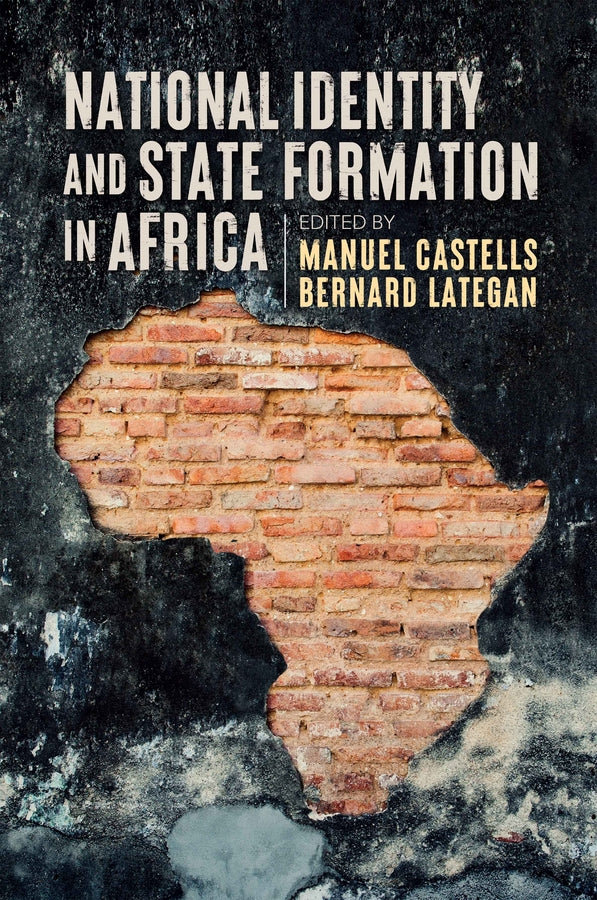Description
Explore the complexities of African society with 'National Identity and State Formation in Africa'. This crucial book, published by John Wiley & Sons in 2021, delves deep into how globalization affects national identity and state formation across the continent. As local identities are increasingly asserted in the face of global influences, the book investigates the dualities that come into play. It covers a range of topics such as the interplay of global networks and their impact on local interests, creating a rich tapestry of case studies from various African regions. Readers will discover how mobility, diversity, and statecraft interact uniquely in Africa, making this book an essential resource for understanding modern political landscapes. It provides insights into federalism not just as a constitutional framework, but as a strategic means to manage the rich diversity found within African societies. Specifically, the text examines settings like KwaZulu-Natal, where elements of traditional kingdoms and contemporary statehood converge. This thought-provoking work is a must-read for students and scholars of African politics, sociology, and social sciences, offering a nuanced perspective on state formation processes. With 240 pages of brand new content, this book is a significant addition to your educational library. Note: Shipping for this item is free. Please allow up to 6 weeks for delivery. Once your order is placed, it cannot be cancelled.
Note: Shipping for this item is free. Please allow up to 6 weeks for delivery. Once your order is placed, it cannot be cancelled.
Condition: BRAND NEW
ISBN: 9781509545612
Year: 2021
Publisher: John Wiley & Sons (UK)
Pages: 240
Description:
This book examines how the interplay between globalization and the assertion of local identities is reshaping the political landscape of Africa. While defending their values against external forces, people simultaneously “ and paradoxically “ use the interconnectivity of global networks to maximize their particular interests. Focusing on the relation between national identity and state formation, the authors explore the far-reaching consequences of these contradictory dynamicsAlthough Africa shares many common trends with other parts of the world, it also displays distinctive features. A region characterized by the increased mobility of people, goods and ideas challenges some conventional assumptions of statecraft and also highlights the advantages of federalism “ not merely as a constitutional option, but as a pragmatic device for managing diversity and holding fragile states together. The book further explores emerging types of state formation in the same political space, as exemplified by the combination of elements of a kingdom, an independent state and a national power base in the province of KwaZulu-Natal and the careful crafting of an alternative state within a state by the Solidarity Movement in South AfricaInformed by examples and case studies drawn from different parts of Africa, this book will be of great interest to students and scholars of Africa, politics, sociology, media studies and the social sciences more generally.
Note: Shipping for this item is free. Please allow up to 6 weeks for delivery. Once your order is placed, it cannot be cancelled.
Condition: BRAND NEW
ISBN: 9781509545612
Year: 2021
Publisher: John Wiley & Sons (UK)
Pages: 240
Description:
This book examines how the interplay between globalization and the assertion of local identities is reshaping the political landscape of Africa. While defending their values against external forces, people simultaneously “ and paradoxically “ use the interconnectivity of global networks to maximize their particular interests. Focusing on the relation between national identity and state formation, the authors explore the far-reaching consequences of these contradictory dynamicsAlthough Africa shares many common trends with other parts of the world, it also displays distinctive features. A region characterized by the increased mobility of people, goods and ideas challenges some conventional assumptions of statecraft and also highlights the advantages of federalism “ not merely as a constitutional option, but as a pragmatic device for managing diversity and holding fragile states together. The book further explores emerging types of state formation in the same political space, as exemplified by the combination of elements of a kingdom, an independent state and a national power base in the province of KwaZulu-Natal and the careful crafting of an alternative state within a state by the Solidarity Movement in South AfricaInformed by examples and case studies drawn from different parts of Africa, this book will be of great interest to students and scholars of Africa, politics, sociology, media studies and the social sciences more generally.

